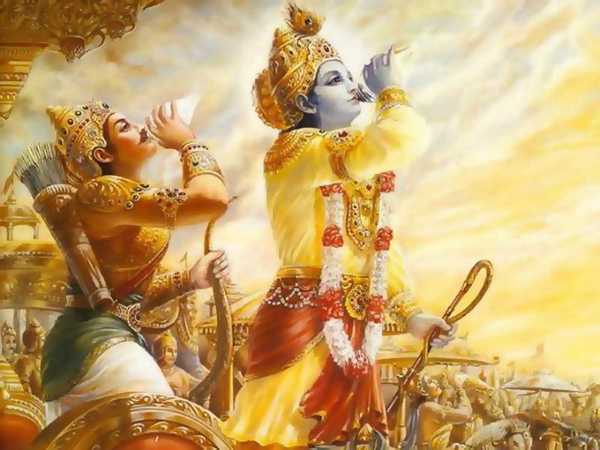Chapter 219

“Markandeya continued, ‘He (Uktha) performed a severe penance lasting formany years, with the view of having a pious son equal unto Brahma inreputation. And when the invocation was made with the vyahriti hymns andwith the aid of the five sacred fires, Kasyapa, Vasistha, Prana, the sonof Prana, Chyavana, the son of Angiras, and Suvarchaka–there arose avery bright energy (force) full of the animating (creative) principle,and of five different colours. Its head was of the colour of the blazingfire, its arms were bright like the sun and its skin and eyes weregolden-coloured and its feet, O Bharata, were black. Its five colourswere given to it by those five men by reason of their great penance. Thiscelestial being is therefore described as appertaining to five men, andhe is the progenitor of five tribes. After having performed a penance forten thousand years, that being of great ascetic merit produced theterrible fire appertaining to the Pitris (manes) in order to begin thework of creation, and from his head and mouth respectively he createdVrihat and Rathantara (day and night) who quickly steal away (life, &c.).He also created Siva from his navel, Indra from his might and wind andfire from his soul, and from his two arms sprang the hymns Udatta andAnudatta. He also produced the mind, and the five senses, and othercreatures. Having created these, he produced the five sons of the Pitris.Of these Pranidhi was the son of Vrihadratha. Vrihadratha was the son ofKasyapa. Bhanu was the godson of Chyavana, Saurabha, the son ofSuvarchaka, and Anudatta, the son of Prana. These twenty-five beings arereputed (to have been created by him). Tapa also created fifteen othergods who obstruct sacrifices[68]. They are Subhima, Bhima, Atibhima,Bhimavala, Avala, Sumitra, Mitravana, Mitasina, Mitravardhana andMitradharaman,[69] and Surapravira, Vira, Suveka, Suravarchas andSurahantri. These gods are divided into three classes of five each.Located here in this world, they destroy the sacrifices of the gods inheaven; they frustrate their objects and spoil their oblations ofclarified butter. They do this only to spite the sacred fires carryingoblations to the gods. If the officiating priests are careful, they placethe oblations in their honour outside of the sacrificial altar. To thatparticular place where the sacred fire may be placed, they cannot go.They carry the oblation of their votaries by means of wings. Whenappeased by hymns, they do not frustrate the sacrificial rites.Vrihaduktha, another son of Tapa, belongs to the Earth. He is worshippedhere in this world by pious men performing Agnihotra sacrifices. Of theson of Tapa who is known as Rathantara, it is said by officiating prieststhat the sacrificial oblation offered in his honour is offered toMitravinda. The celebrated Tapa was thus very happy with his sons.”




